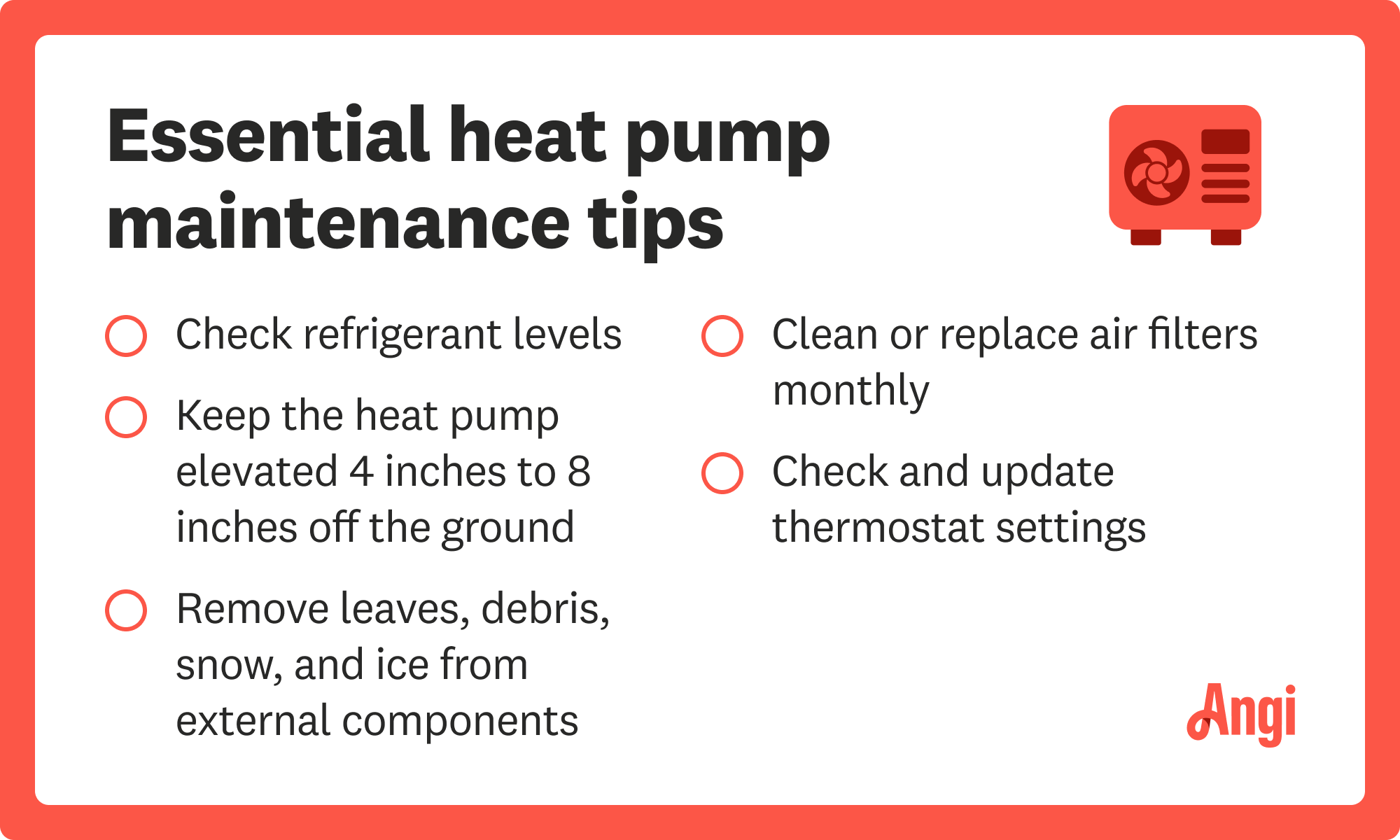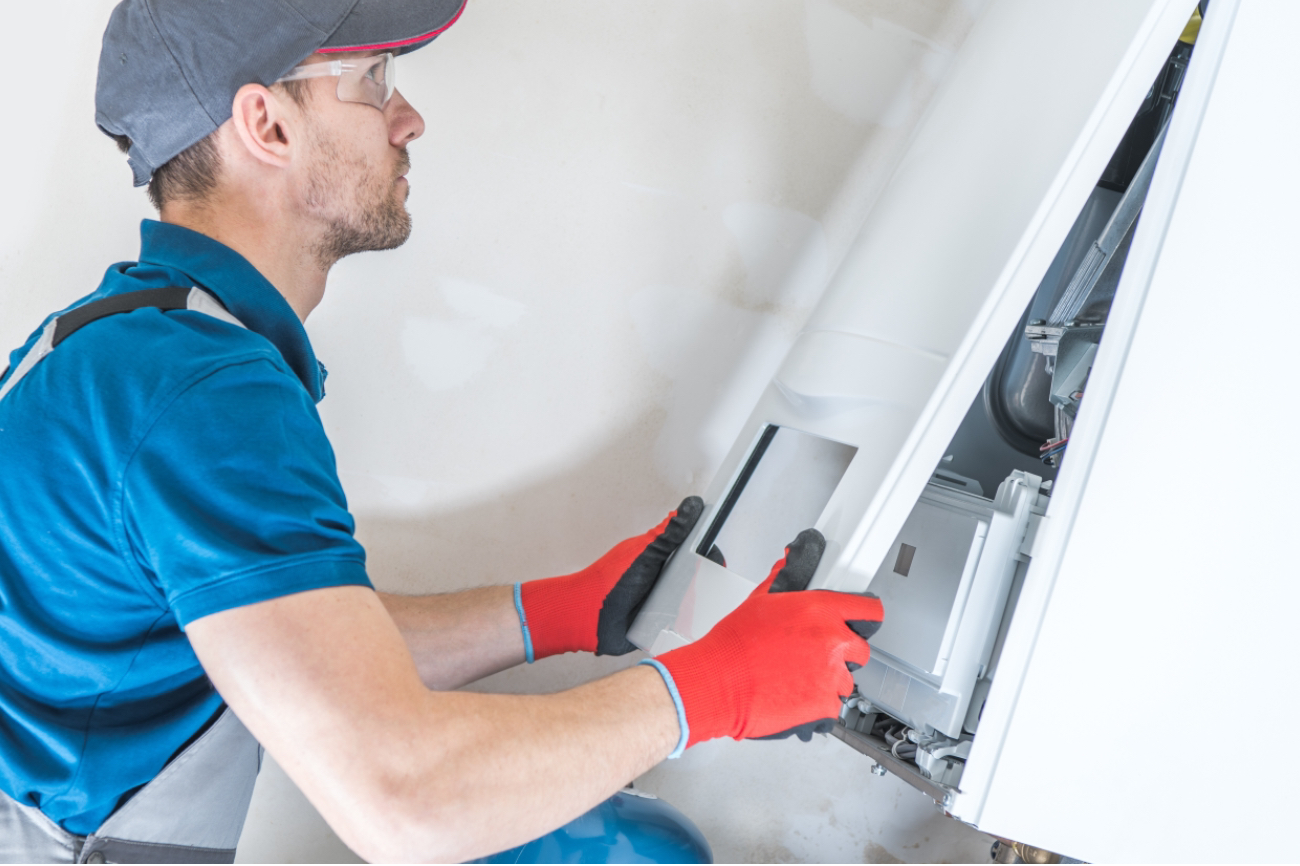
Find out the average humidifier repair cost, what impacts pricing, and how to save. Get expert tips to budget for your humidifier repair.
Heating and air conditioning service costs depend on your project and location. Check with a local pro for your specific job.
The type of heat pump you install has a big impact on your heat pump costs in San Francisco, California.
Mini-splits and other types of air-source heat pumps cost less than ground-source heat pumps.
Your heat pump’s size also affects its price, with larger units costing more than smaller ones.
You’ll spend more if you buy a high-efficiency heat pump or need to replace any ductwork.
At $10,134, the average heat pump cost in San Francisco, California, is far higher than the national average, thanks to the city’s steep cost of living. If you’re hoping to install a heat pump here, you can expect to spend between $5,014 and $15,986, depending on the heat pump’s type, efficiency rating, and other factors. Here’s everything you need to know to estimate your heat pump costs in San Francisco.
The type, size, and efficiency rating of your heat pump are some of the main variables that influence your San Francisco heat pump installation costs. Let’s break down each of these factors.
Air-source heat pumps (including mini-splits) and ground-source heat pumps are the most popular types of heat pumps for homes.
If you’re on a tight budget, the most affordable option is a ductless mini-split, which doesn’t require ductwork (but can only cool one room at a time). Ground-source heat pumps (or geothermal heat pumps) can provide whole-home cooling but require ample land to install an underground system of pipes—which isn’t always feasible in San Francisco.
| Heat Pump Type | Average Unit Cost |
|---|---|
| Ductless mini-split | $700–$6,000 |
| Air source | $1,500–$4,500 |
| Ground source | $2,400–$8,000 |
Heat pumps also come in a range of sizes—and the size you choose will affect your overall costs. Heat pump sizes are listed in tons or British Thermal Units (BTUs), which measure the unit’s heating and cooling capacity. Smaller heat pumps are less expensive than larger units due to their more limited heating and cooling capacity.
Heat pumps both heat and cool your home and can be ducted or ductless. They work similarly to air conditioners, but heat pumps can reverse the cooling process and also warm your home.
If you buy an air-source heat pump, here’s how its size—in tons or BTUs—will influence its price:
| Heat Pump Size (in Tons) | Heat Pump Size (in BTUs) | Average Unit Cost |
|---|---|---|
| 2 | 24,000 | $1,200–$3,000 |
| 3 | 36,000 | $2,200–$5,800 |
| 4 | 48,000 | $3,000–$7,000 |
While you’re shopping for heat pumps, you’ll notice that there are different efficiency ratings for heating and cooling:
Heating efficiency: Heating Seasonal Performance Factor (HSPF) or HSPF2
Cooling efficiency: Seasonal Energy Efficiency Ratio (SEER) or SEER2
The higher the heat pump’s HSPF or SEER rating, the more efficiently it uses energy to heat or cool your space. Since high-efficiency heat pumps consume less power than standard-efficiency units, they can help you spend less on electricity. However, they’re more expensive up front, which you can see below:
| Heat Pump SEER Rating | Average Unit Cost |
|---|---|
| 15 | $1,800–$5,900 |
| 16 | $2,400–$6,200 |
| 18 | $2,900–$6,700 |
| 20 | $3,600–$9,500 |
If your existing ductwork is damaged, moldy, inefficient, or a bad match for your new heat pump, you might need to repair or replace it when installing your heat pump. For an average home in San Francisco, replacing ductwork costs between $886 and $3,159. Your total will depend on the amount of ductwork you need to replace, the duct material, and other factors.
On the other hand, if your home doesn’t have a duct system, you’ll need to add one (unless you choose a ductless heat pump). Installing ductwork can be time-consuming and pricey, often costing $3,000 to $7,500 per 300 linear feet.
To finish estimating your heat pump installation costs, you’ll need to factor in a few more things, including labor, permits, and San Francisco’s sales tax.
Before you hire an HVAC contractor to install your heat pump, make sure they have an active C-20 Warm-Air Heating, Ventilating, and Air-Conditioning Contractor license from the California Contractors State License Board (CSLB).
To legally handle refrigerant, your HVAC pro in San Francisco, California, also needs a Section 608 Technician Certification from the Environmental Protection Agency (EPA).
Finally, consider hiring a contractor who’s certified by North American Technician Excellence (NATE), the country’s biggest non-profit certification program for heating, ventilation, air conditioning, and refrigeration (HVACR) professionals. A NATE certification is optional, but if your installer has one, it means they have up-to-date knowledge, skills, and safety training and several years of experience in the field.
In San Francisco, you need a mechanical permit to install a heat pump. Currently, this type of permit costs about $200. If your contractor is registered with the city, they can apply for mechanical permits online.
San Francisco’s combined sales tax rate is 8.625%. If you buy a heat pump in the city, be sure to factor this into your overall costs. For example, if you choose a $2,500 heat pump, the sales tax would add $216 to your total.
There are various rebates available to San Franciscans who install energy-efficient heat pumps. With TECH Clean California, for example, you can earn a rebate of $1,000 to $1,500, depending on the specifics of your project.

If you’re thinking about selling your home, a new heat pump can boost its value by 5% to 7% and earn the attention of buyers—especially if you invest in an efficient unit. Since high-efficiency heat pumps consume less electricity, they can be particularly attractive to buyers in the Bay Area, where electricity is 110.2% more expensive than the national average, according to the latest data from the Bureau of Labor Statistics (BLS).
Home is the most important place on earth, which is why Angi has helped more than 150 million homeowners transform their houses into homes they adore. To help homeowners with their next project, Angi provides readers with the most accurate cost data and upholds strict editorial standards. We survey real Angi customers about their project costs to develop the pricing data you see, so you can make the best decisions for you and your home. We pair this data with research from reputable sources, including the U.S. Bureau of Labor Statistics, academic journals, market studies, and interviews with industry experts—all to ensure our prices reflect real-world projects.
Want to help us improve our cost data? Send us a recent project quote to [email protected]. Quotes and personal information will not be shared publicly.
From average costs to expert advice, get all the answers you need to get your job done.

Find out the average humidifier repair cost, what impacts pricing, and how to save. Get expert tips to budget for your humidifier repair.

Ductless heating and cooling system costs vary depending on size, type, and energy efficiency. Their installation is likely to lower your energy bills.

What you’ll pay in Columbus, OH, for furnace repairs depends on many factors. Here’s a breakdown of what can go wrong and the cost to fix those issues.

When you notice hot and cold zones in your home, it pays to learn how to balance airflow in your ducts to even out the temperature.

Not sure who to hire to install radiant floor heating? Learn which pros handle radiant floor heating installation and how the work comes together.

Discover heat exchanger replacement costs to learn about price factors, labor, and ways to save before hiring a pro or starting your project.